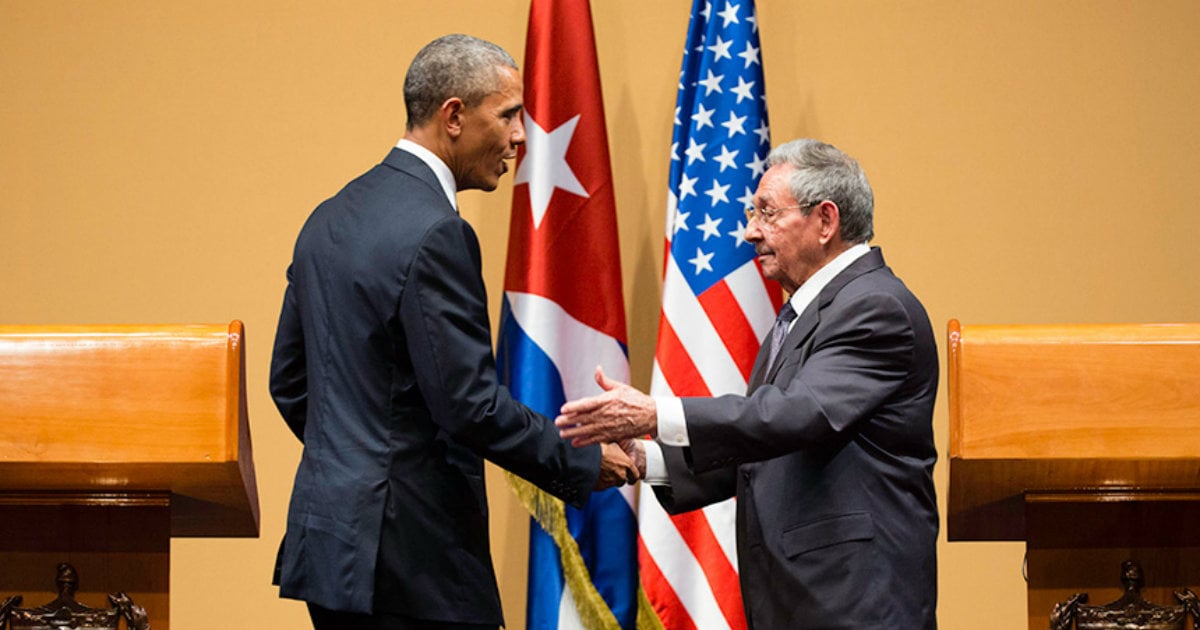As a decade has passed since the historic announcement by Raúl Castro and Barack Obama on December 17, 2014, marking the beginning of a thaw in relations between the United States and Cuba, the U.S. government has labeled this era as a "missed opportunity." The criticism stems from Cuba's failure to make significant progress in human rights and democratic reforms.
According to statements from Brian Nichols, the U.S. Undersecretary of State, reported by Martí Noticias, despite the diplomatic efforts initiated in 2014 under the Obama administration, the Cuban government did not fulfill the expected changes that the opening offered. "The restoration of diplomatic relations under Obama's leadership was a critical step to improve the lives of Cuban citizens and address challenges like the lack of democracy on the island. However, the reforms we hoped to see did not materialize," Nichols stated.
Instead of seizing the economic and political opportunities that the reestablishment of relations presented, Havana continued its restrictive and repressive policies toward its population. The thawing process, which included reopening embassies and increasing the flow of tourists and remittances to the island, initially sparked hopes for internal transformations.
The Initial Optimism of Renewed Ties
In 2015, then-President Obama highlighted the rapprochement with Cuba as one of his administration's major achievements, emphasizing the reopening of embassies and the easing of travel restrictions. However, by 2016, it became evident that although some changes had occurred, the economic embargo and human rights violations in Cuba persisted.
The Impact of U.S. Policy Shifts
The Cuban regime's reluctance to implement significant structural changes has left the nation in economic and social stagnation, worsened by the sanctions reimposed during Donald Trump's administration and upheld by Joe Biden. During his first term, Trump executed a series of measures that reversed much of the engagement promoted by Obama. Key actions included strengthening the economic embargo, travel restrictions to Cuba, and limits on remittances.
Furthermore, in January 2021, just before leaving office, the Trump administration reinstated Cuba on the list of state sponsors of terrorism, imposing new sanctions and financial restrictions. Analysts suggest that these measures aimed to pressure the Cuban government into democratic reforms and improving human rights. However, they also contributed to Cuba's economic deterioration and the worsening living conditions for its people.
Outlook for U.S.-Cuba Relations
"In 2021, we witnessed a wave of repression that truly shocked the world, a significant setback for the Cuban people's welfare and the international community. It was indeed a missed opportunity by the Cuban regime," Nichols emphasized. Operating under Biden, who has maintained his predecessor's policies, the U.S. reiterated that any future engagement with Cuba hinges on concrete advancements in the release of political prisoners, respect for human rights, and the implementation of democratic measures.
Currently, the bilateral relationship remains fraught with tensions and mistrust, casting a critical light on the decade since the historic announcement.
Frequently Asked Questions on U.S.-Cuba Relations
What were the expected changes in Cuba following the thaw in relations?
The expected changes included significant progress in human rights, democratic reforms, and improved living conditions for Cuban citizens.
How did the Trump administration alter U.S.-Cuba relations?
The Trump administration reversed much of the previous engagement by reinforcing the economic embargo, imposing travel restrictions, and limiting remittances to Cuba.
Why is Cuba's economic situation considered stagnant?
Cuba's economic stagnation is attributed to its reluctance to implement structural reforms and the impact of sanctions reimposed by the U.S.
